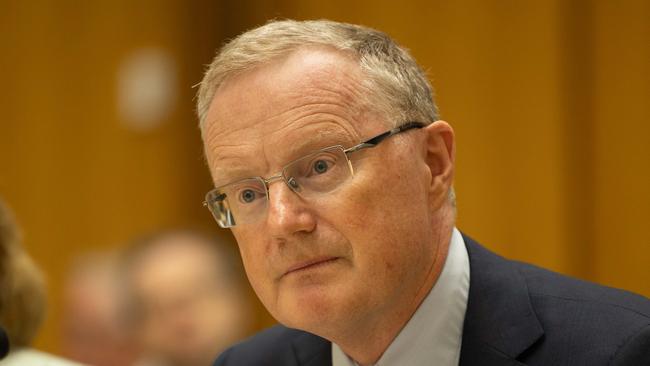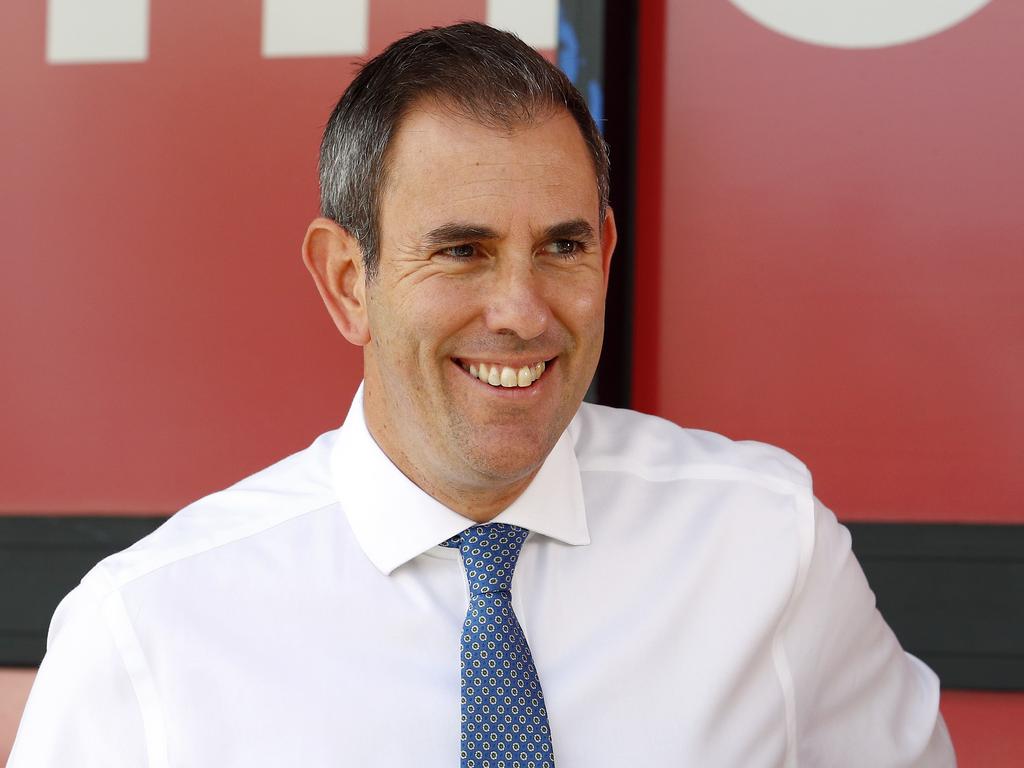Banks slow to help savers, RBA governor Philip Lowe says
As the sector faces a new probe over why rates have not moved up as quickly for savers, CBA chief Matt Comyn conceded there were ‘far fewer promotional rates’ for deposit accounts.

Reserve Bank governor Philip Lowe says banks have been slow in passing on higher interest rates to savers, as the sector faces a new probe over why rates have not moved up as quickly for savers as mortgage holders.
While the big four banks vowed to co-operate fully with the Australian Competition and Consumer Commission inquiry, which will report to government by December 1, Commonwealth Bank of Australia chief executive Matt Comyn conceded there were “far fewer promotional or introductory rates” for deposit accounts than in the past.
Jim Chalmers said the ACCC inquiry would “shine a light on the dynamics of the retail deposit market”, noting Australian households held more than $1.3 trillion in savings and deposit accounts.
“Australians should see the benefit of higher interest rates flow through to their savings accounts – it should be the silver lining when rates increase,” the Treasurer said.
“It’s a fact that banks have been a lot slower to pass on the increases in interest rates to savers than to mortgagees.”
Dr Lowe told Senate estimates that increasing interest rates had an “immediate effect” of boosting banks’ profits, “particularly if they’re slow in raising deposit rates, which they have been”.
“I know the government is concerned about that and rightly,” Dr Lowe told a Senate estimates hearing.
He added that the impact of higher interests rates over time would slow the economy, leading to lower profits for the banks.
“So there’s kind of a better now, maybe not so good later on (situation),” Dr Lowe said.
Australian Banking Association chief executive Anna Bligh said there was no requirement for banks to provide written notice when they increased rates on a deposit account but most were passing higher interest rates on within a couple of weeks.
“The purpose of the ACCC inquiry is to determine how savers are benefiting from a higher interest rate environment. Banks stand ready to assist the ACCC in an open and transparent manner,” Ms Bligh said.
“I expect that the final report of the ACCC Inquiry will provide clearer answers on how banks are dealing with this issue.”
Mr Comyn said the delay in passing on higher interest rates to deposit accounts was “nothing like I think the way it’s probably been … portrayed in the media”.
He noted the bank had a number of “very competitive offers” of savings accounts with 4 per cent interest rates.
“There seems to be a view that banks change rates at different paces depending on whether the interest rate cycle is going … up or down, and depending on those changes to either deposits or loans,” he said.
“At least in the case of the Commonwealth Bank I think that’s actually quite a narrow range. If we looked at the change in rates over the last few years, it’s broadly between 10 and 15 days before the pricing changes are passed on to either loans or to deposits products. That was true on the way down and on the way up there might be some slight variances in that.
“The banking industry should expect scrutiny at all times and I do think there’ll be a lot of pressure on the cost of everything during calendar 2023, given the strain that households will feel from a combination of higher inflation, eroding savings and also pressure on household budgets from higher rates.”
Opposition treasury spokesman Angus Taylor said it was appropriate the ACCC “vigilantly monitor” the behaviour of banks as interest rates and inflation continued to rise.
“At a time where inflationary pressures are stubborn, the Treasurer’s only plan is to spend more money and make the Reserve Bank’s job harder,” he said.
“It’s critical the government manage its budget and support genuine productivity reforms to take pressure off inflation and help Australians struggling with the cost of living.”








To join the conversation, please log in. Don't have an account? Register
Join the conversation, you are commenting as Logout